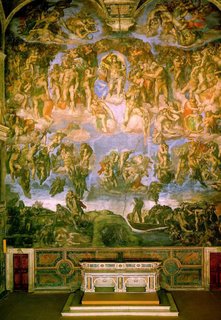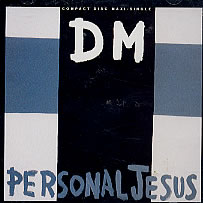 Then he said to them, "The Sabbath was made for man, not man for the Sabbath." Mark:2:27 (New International Version)
Then he said to them, "The Sabbath was made for man, not man for the Sabbath." Mark:2:27 (New International Version)A day is like a thousand years for the Lord. Therefore, might not 1,000 years be like a day for the Lord? The time period that Father and Spirit were separated from Christ might very well have felt like a thousand years . Being separated from the ones you love for any length of time is painful. How much greater was the pain of immortal beings than is our pain in being separated from each other for so long a period of time?
Perhaps the 24-hour Sabbath or Day of Rest is sufficient for most Seventh-day Sabbath Christians. The extra hours beyond sundown on Saturday and ending at daybreak on Sunday morning can be thought of as an extension, or enhancement, for those desiring a longer day of devotion, instead of an actual integral part of the official or standard Sabbath day that we are enjoined to remember and commemorate. By being a conceptual day outside of the actual Seventh day, and because the hours under consideration are integral or important hours during which Christ was still in the tomb and thus separated from Father and Holy Spirit, these additional hours of commemoration are not for the simply spiritual but for the deeply, or extraordinarily, spiritual Christian that wishes to more fully, or perfectly, observe or commemorate, Christ's separation from Father and Spirit. It is this separation that was the result of Christ's redeeming sacrifice for humankind.
This additional period, not yet Sunday and not Sunday in its 24-hour totality either, may very well be thought of as a conceptual day, or an Eighth Day, if you will. In this way all may observe the 7th day Sabbath of Rest, but only those wishing to experience something beyond rest, an intimation of eternity, might keep this 8th day. While the week is complete with the 7th day, the concept of the 8th day, being beyond the totality of the 7th day, can be thought as being something beyond completeness, if such a thing is possible. It may be a day that is beyond perfection if we consider perfection not as a static reality, but an ever-evolving and improving one. Since this 8th-day Sabbath is not specified in the Bible, or in Ellen White’s
Testimonies for the Church, the observance of this time period beyond the setting of the sun on Saturday evening and lasting till daybreak on Sunday morning, are for those wanting or needing to go the extra-mile. You will have gotten all you needed during the 24-hour rest of the 7th-day Sabbath, but you also got something extra and equally as fine, the quiet and lingering spiritual essence of the 8th-day rest, or Sabbath.
The Seventh-day Sabbath can be enjoyed and appreciated as is, make no mistake about this truth. It, however, can only be enjoyed and appreciated by those who are enabled by Christ's righteousness by faith, as opposed to those who find that in order not to violate their own religious scruples or conscience, make the best effort they can to observe this oasis-like commandment. How unusual is this commandment that unlike the other nine, needs only to be kept on the Seventh-day, Saturday. Of course, the spirit of the Sabbath should be carried through the other six days of the week, but the actual letter of the law specifies only one 24-hour period at the end of each week.
It is an enigma that this same commemorative commandment is one that causes most disharmony among all of Christendom. Except for pockets here and there throughout history, e.g., the Waldensians, most of post-apostolic Christendom has kept Sunday as the Sabbath day, not Saturday. Even Sunday, if observed, is kept only once a week, whereas the other nine need to be kept all of the time, seven days a week. Since the law of God is a whole and not ten separate components, it could be said that in keeping the other nine during all seven days, you are also keeping the fourth commandment, the seventh-day sabbath which comes but once a week. Likewise, it could be said that in keeping the fourth commandment, which comes but once a week, you are also keeping the other nine which are in play all week long. "For he who said, 'Do not commit adultery,'[
a] also said, 'Do not murder.'[
b] If you do not commit adultery but do commit murder, you have become a lawbreaker." James 2:11 (New International Version). Again, might the reverse of this text be equally true, as well, since as they say in basic algebra, if a=b, then b=a? Do we keep all the other nine commandments that are ever in play, by keeping the fourth commandment that comes but once a week? And, do we keep the fourth commandment, "Remember the Sabbath day to keep it holy," when we keep the other nine?
It should be pointed out that this text, James 2:11, does not say, as is often believed in some churches in Christendom, that you break all ten commandments if you break but one. Even Martin Luther initially referred to the epistle of James as the epistle of straw, though he later amended his comments in a revised edition of his autobiography. What James 2:11 is really saying, is that if you are an enthusiastic adherent of righteousness by faith in Christ and His saving grace, you are well aware that no one can keep even one commandment on their own, or by their own effort. If they do, or seem to do so, it is merely outward moralistic behavior. Only by accepting the free gift of Christ's righteousness and experiencing the gift of His Holy Spirit which works in us to produce "spontaneous" and genuine commandment keeping, as Morris Venden says in
Faith that Works, are we actually, and freely, experiencing and enjoying the fruits of Christ's righteousness by faith? "If we confess our sins, he is faithful and just and will forgive us our sins and purify us from all unrighteousness." 1 John 1:9 (NIV). This purification, as well as the forgiveness of sins, or justification, is not something we can do to, or for, ourselves. It is something that can only be done “to” us by the indwelling Holy Spirit as well as the prior “external” wooing of the Spirit of Repentance. This verse does not add "and make sure to keep all ten commandments and not break even one, because that would cancel out any positive influence, or effect, the keeping of the other nine had on you or on others." Such a point of reference almost seems to suggest, "if you broke one, why bother keeping the other nine. You blew it, so why even try?" It also suggests to some, but not all thankfully, that if you keep all except one of the commandments, you might well not have bothered to keep the other nine. This kind of thinking might encourage some with a weaker nature or conscience, to reason, "well I didn't keep the Sabbath holy because I went dancing at the clubs on Friday night or went to the mall for a two-hour dvd shopping marathon, so what's the big deal if I go ahead and break some of the other nine?
Insisting that you have to keep all of the commandments, by your own efforts and supposed righteousness we should add, or else, why should you go through the sham of keeping what commandments you still have available to keep, leads to more flagrant commandment breaking. It also leads weaker minds to become enboldened in commandment breaking because of the legalistic tenor of this way of thinking. "May I never boast except in the cross of our Lord Jesus Christ, through which[
a] the world has been crucified to me, and I to the world." Galatians 6:14
Christians who observe the seventh-day, mostly Seventh-Day Adventists, Seventh-Day Baptists, as well as a few others, would still continue to be integral members of their faith or system of beliefs. Those, however, who additionally observe the quintessence of the Eighth Day, a day of going beyond that which is required, would additionally be Eight-Day Futurists, because they would observe the enhanced meditation and contemplation of Christ's complete separation from Father and Spirit, which is a symbol of the excruciating separation between humankind and God, this side of eternity.
Eighth-day futurists focus both on this virtual day of meditation and contemplation, as well as the future life to come and its perfection. Some 8th-day Futurists who belong to less than progressive congregations or communities may reserve their observance of the 8th-Day, in the event it would precipitate expulsion or ridicule, or worse, indifference itself, from members of their standard congregations. Most, if not all, of the 8th-Day Futurists could probably hide the fact that they were 8th-day Futurists with little or no inconvenience. It would be their private devotional habit, and with astute powers of observation, they might well realize whom among their own, or in society at large, are also 8th-day futurists. It should be pointed out for those who further explore links related to this blog, that there is a school of 8th-day futurism that is a kind of bridge for secular individuals that perhaps one day, may accept the full meaning of the 7th-day sabbath and righteousness by faith in Jesus Christ. In climbing Jacobs ladder, we don't want to remove the bottom rungs for anyone just because we are half way or almost near the top of our climb.
As of this day, July 2, 2006, we have experienced only our first 8th-day Sabbath, after enjoying the blessings of the 7th-day Sabbath. Though it was the first actual one experienced, it had been planned for more than a year, perhaps as long as ten years though it was dimly understood. Only the name, 8th-day Futurists, lingered in quiescence until a brighter day or spiritual experience might dawn. Our first actual 8th-day Sabbath was an experience like no other. It had been entered into with prayer and meditation and not, it is hoped, for the sheer exoticness of keeping a conceptual day, an eighth one and a Sabbath, at that. Less anyone should mistake what we mean by speaking of the 8th-day sabbath, again, we are not referring to the 24-hour period known and observed by most of Christendom, the Sunday sabbath.
Instead of rushing to turn on the television or making quick plans to find some wholesome activity to do on the much-hoped-for post-Sabbath Saturday night, the arrival of the 8th-day Sabbath made one want to linger in the luxuriousness of the 7th-day Sabbath and its afterglow. What activities or wholesome pleasures were engaged in were with the enhanced awareness that we were still commemorating all of the hours that Christ was separated from Father and Holy Spirit, as well as their being separated from Him whom they loved as much as they loved themselves. With the arrival of dawn, the newness of the 8th-day Sabbath had not ingrained itself into our consciousness; it was only 15 minutes after rising from sleep, while we were walking the dog, that the post 8th-day Sabbath morning made us realize that our first 8th-day Sabbath had come and gone as quietly as it had arrived. With eagerness we looked forward not only to the arrival of the 7th-day Sabbath, but to its companion, the 8th-day Sabbath, the complement to an already perfect day.
 While it makes for interesting, and some would insist historically important, Bible study, and, no doubt, it enrichens one's understanding of God and a host of other aspects of soteriology, I, for one, lose very little sleep worrying about the 2,300 days, years, or millennia.
While it makes for interesting, and some would insist historically important, Bible study, and, no doubt, it enrichens one's understanding of God and a host of other aspects of soteriology, I, for one, lose very little sleep worrying about the 2,300 days, years, or millennia.












